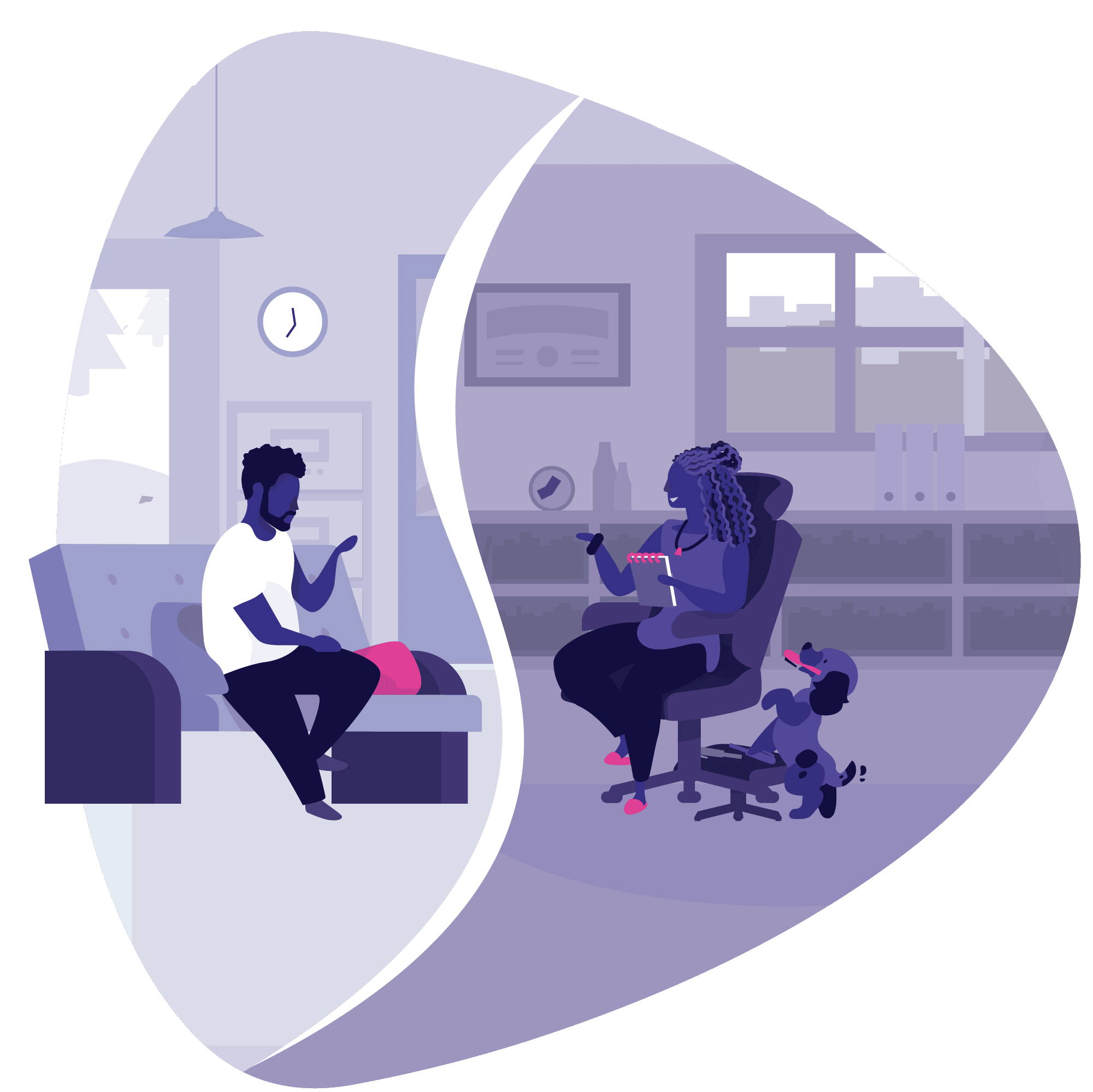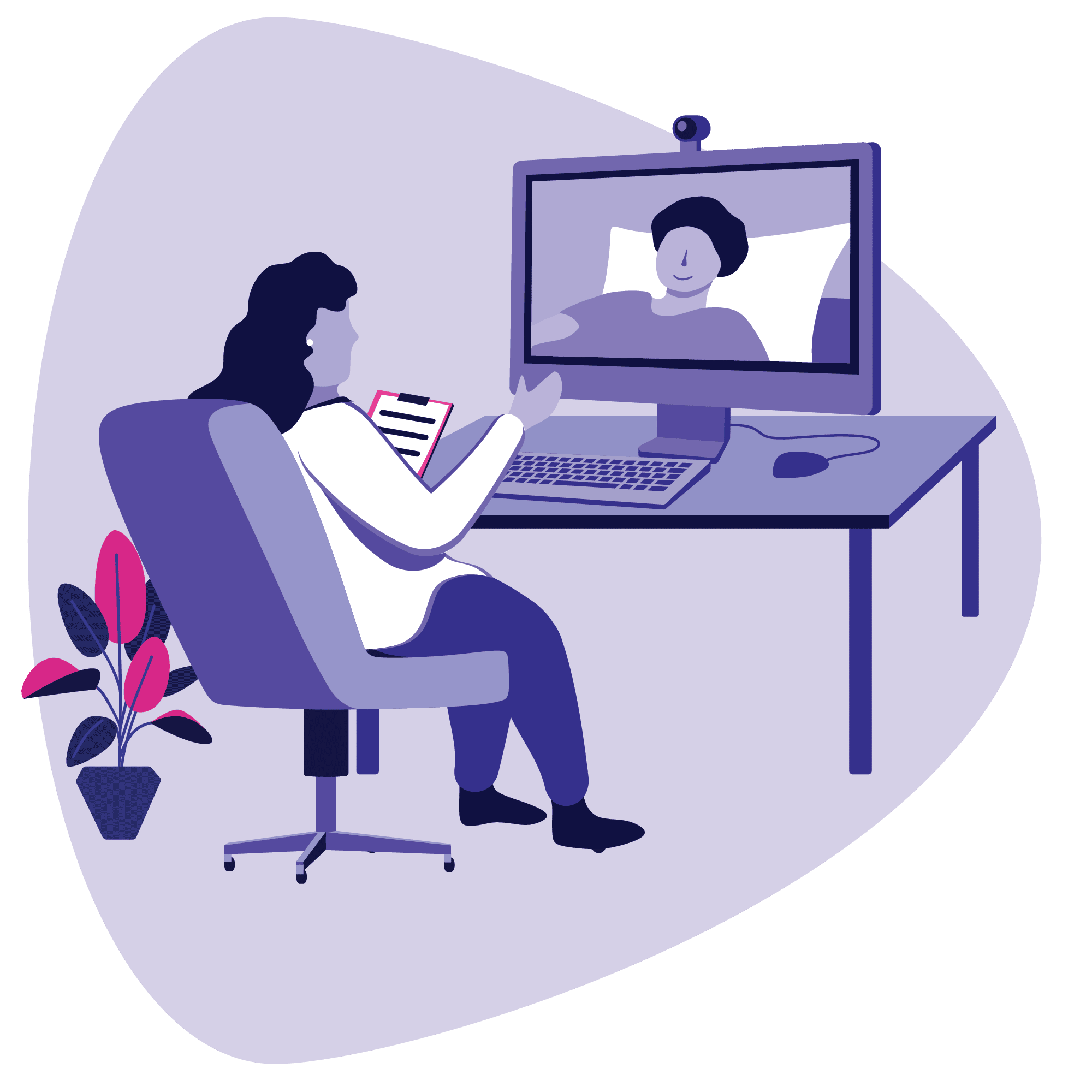Quick links
How providers can address mental health in the Black community
How organizations can address mental health in the Black community
How telehealth can help address mental health in the Black community
Resources and education opportunities for providers
How Iris Telehealth can help
According to the National Alliance on Mental Illness (NAMI), only one in three Black adults with mental illness receive treatment, compared to 40% of white adults. Additionally, there has been a recent spike in depression and anxiety among Black Americans amid protests and racial trauma. Discrimination continues to be a significant source of stress for Black Americans, with 48% reporting discrimination as a stressor.
When thinking about mental health in the Black community, it’s important to put into perspective how their experiences are impacted by culture and history. While the civil rights movement of the 1960s ended the visible racial and ethnic barriers enabling segregation, racism still exists today, often in more hidden forms like healthcare inequality.
Organizations can work to address these inequalities by helping create better access to mental health support and providing more culturally competent care. Keep reading to find new resources and strategies your organization can use to better support the mental health of Black Americans in your community.
How providers can address mental health in the Black community
Studies consistently show that Black Americans are often undertreated and misdiagnosed. According to a report by the Agency for Healthcare Research and Quality (AHRQ), Black and Hispanic patients receive inferior care compared to white adults on 40% of quality measures. These quality measures examined effective treatment, care coordination, and affordable care.
To help improve care and prioritize this population’s well-being, here are a few best practices you can implement to provide effective support and communication:
- Proper screening and follow-ups: The Black community is 20% more likely to experience a serious mental health condition, like Major Depressive Disorder or Generalized Anxiety Disorder. Proper screening and thorough assessments allow Black patients to combat undertreatment and misdiagnosis. Implementing proper screening could improve treatment for mental health problems and reduce disparities in care.
- Be conscious and mindful: Recognizing personal biases in treatment can enhance patient care. A patient who notices a provider’s implicit bias could feel less inclined to engage with their provider. By integrating culture and family history and addressing the significance of your patient’s background into the treatment of your Black patients, you can drastically improve quality of care.
- Educate yourself: Learning about the population you’re treating should be ongoing. By taking deliberate and conscious action, you can help address inequalities, grow your own awareness, and improve as a provider overall.
How organizations can address mental health in the Black community
As a healthcare organization, creating an environment where Black Americans receive culturally competent care is vital. Here are several different ways your organization can ensure your Black patients get the care they need and deserve:
- Train a workforce that resembles the patient population: According to the American Psychiatric Association, only 2% of psychiatrists identify as Black. Some Black patients may feel they can better connect with a provider who shares their same background and can identify with their specific cultural stressors. By training a workforce that can relate to the experiences of Black American patients, you can help improve cultural competency. Regardless of similarity in ethnicity, compassion and cultural competency are crucial when treating patients from all backgrounds.
- Engage with the community: In an article by the American Medical Association, they highlighted seven ways to improve Black health in mind and body. One of these ways was for those in healthcare leadership to engage with the Black community and meet them where they are by attending community events, partnering with community leaders, and working to dispel the distrust against medical establishments. Outside of a medical environment, leadership can focus on making connections with the community, staying open, and being transparent.
- Address social determinants of health: Organizations can seek strategies to connect patients to community and government resources. Some strategies could include care planning, partnering with community organizations, or linking patients with resources to fulfill their needs. A licensed clinical social worker (LCSW) can provide this type of support specifically to individuals by connecting them with necessary resources in their community.
- Incorporate telemental health: Adopting telehealth can be a great tool for Black patients. For some people, getting the care they need can be difficult due to transportation issues, caregiving responsibilities, or the obstacle of finding a culturally competent provider. Telehealth can connect patients to the care they need by helping them work with a specialist regardless of where they’re located.
How telehealth can help address mental health in the Black community
In 2020, a study from the Perelman School of Medicine at the University of Pennsylvania reported that 33% of Black patients’ appointments were completed via telemedicine. Additionally, this study showed that Black Americans used telemedicine more often than non-Black patients.
While this population faces many challenges, from stigma to lack of culturally competent care, technology can help promote better mental health care. Here are a few ways telehealth can help:
- Telehealth connects patients to culturally competent care: Telehealth can connect Black patients to providers who can better understand their experiences and provide cultural sensitivity. No matter where they are located, black patients can find someone who can provide high-quality mental health care for them.
- Telehealth offers flexibility: For some patients, the flexibility of receiving care from a remote location, like their home, can bring many benefits. Telehealth usage for Black Americans could help prevent stigma, increase flexibility for busier patients, and better manage their health. Black Americans can feel at ease knowing they have options to manage their mental health.
- Telehealth improves outcomes: Utilizing telehealth can enhance patient outcomes. It allows providers to work with caregivers and improve clinician workflows. According to Health Recovery Solutions, the best patient outcomes come from a balance of patient engagement, clinician satisfaction, and healthcare resources. Black patients can receive the best care possible when they’re engaged in follow-ups, chronic condition management, and medication management.
Resources and education opportunities for providers
There are many resources available for providers and organizations looking to learn more about offering enhanced mental health care for Black Americans.
Here are a few to help you get started:
- American Medical Association (AMA) Ethics Talk: This video on “Antiracism, Health Equity, and a Post-COVID Future” talks about the impact of racist policies in healthcare and what it means to be antiracist.
- American Psychiatric Association (APA) Stress & Trauma Toolkit: This toolkit from the American Psychiatric Association offers information for treating African Americans in a changing political and social environment.
- Race & Diversity Reading List: These books are specifically selected for psychologists and other mental health care providers. They address issues related to race, ethnicity, and identity for a better understanding of how to support your Black patients.
How Iris Telehealth can help
Whether you’re an organization looking to implement telehealth into your practice or a clinician looking to provide care to specific populations, Iris Telehealth can help. We can help you provide culturally competent care and connect your patients with their best provider match. Contact us today to learn how you can implement an effective and culturally competent telepsychiatry program.



